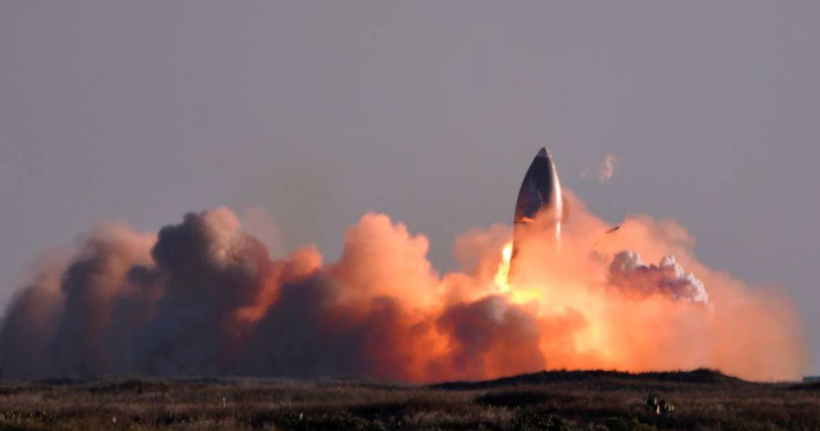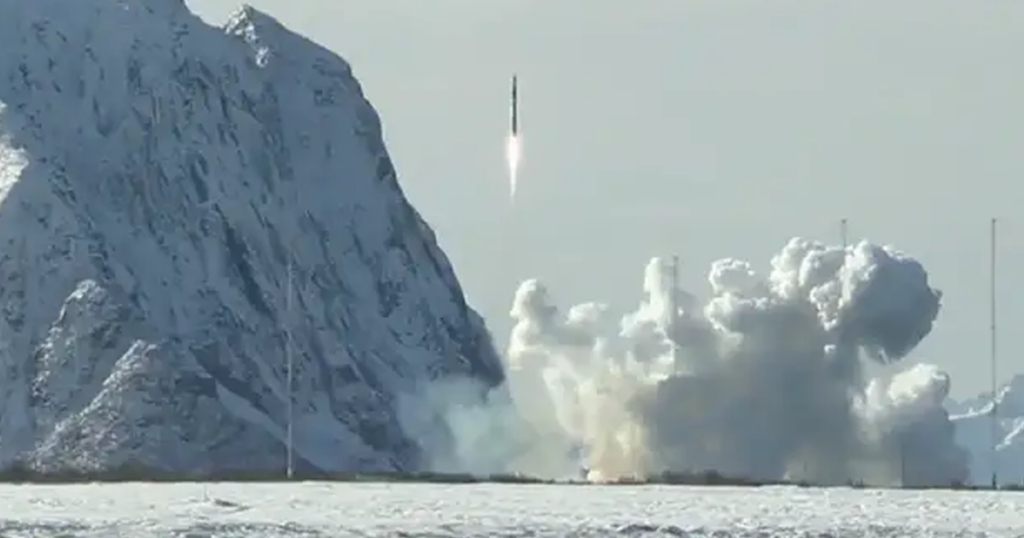Elon Musk Reacts as German Rocket Explodes During Test Launch: “Space is Hard”
What Happened During the German Rocket Test?
On Saturday, the world watched as a small German space startup faced a major setback. The company, named Isar Aerospace, was testing its Spectrum rocket when things suddenly went south. Not long after liftoff, the rocket exploded mid-air, breaking apart and falling in pieces over the North Sea. Thankfully, no one was injured, and the test was conducted safely over uninhabited water.
But as you might expect, the event didn’t go unnoticed—especially by one of the most well-known names in the space industry: Elon Musk.
Elon Musk Chimes In: “Space is Hard”
Elon Musk, CEO of SpaceX and Tesla, is no stranger to rocket failures. In fact, SpaceX has had its fair share of explosions and setbacks, especially in its early years. So when news of the German rocket failure hit social media, Musk responded simply: “Space is hard.”
It might sound like a casual remark, but anyone who knows the history of space travel understands just how true those words are. Building rockets is complicated. They involve thousands of parts, extreme heat, high-pressure systems, and precise timing. A small glitch can lead to a dramatic failure.
Elon Musk’s Grok AI Labels Him Top X Misinformation Spreader
Why Rocket Science Really Is Rocket Science
Ever hear someone say, “It’s not rocket science,” to describe something easy? Well, this incident is a reminder that space exploration truly is rocket science—and it’s anything but easy.
Here’s why developing rockets is so challenging:
- Precision Engineering: Every part of a rocket must be perfectly designed. Even a small error can be catastrophic.
- Extreme Conditions: Rockets face intense pressure, heat, and force, especially at launch.
- High Costs: Testing rockets is expensive. A failed test can cost millions of dollars.
- Complex Systems: A rocket involves fuel systems, navigation software, propulsion systems, and aerodynamics—all working together flawlessly.
So when a rocket explodes during a test, it’s not always a failure—sometimes it’s part of the learning process.
Isar Aerospace: Europe’s Rising Space Star
Let’s talk a bit more about Isar Aerospace. Based in Germany, this company is part of a growing field of private space startups in Europe. Their goal? To make launching small satellites into space easier, cheaper, and faster.
The rocket that exploded was the “Spectrum,” designed to carry small payloads into orbit. Isar Aerospace has been working hard to get this rocket off the ground—literally. Though this explosion is a setback, it’s not the end. In fact, most experts – and Musk himself – know that failure is often part of the journey toward success in space.
Setbacks Like These Are Nothing New – Even for SpaceX
Let’s take a trip down memory lane. SpaceX didn’t start out with victorious Falcon 9 launches and astronaut missions to the International Space Station. In the early 2000s, SpaceX’s first three rockets blew up.
In fact, as Elon Musk has often said, there was a point where SpaceX only had funding for one more rocket. If that one failed, the company was done.
But that final attempt? It worked.
The company has come a long way since then. Today, SpaceX is a global leader in private spaceflight, regularly launching rockets and returning them safely to Earth.
What’s the lesson here? Every successful rocket company has faced failure. It’s how they respond to those failures that counts.
Social Media Reacts to the Explosion
As the news spread online, many people shared the video and expressed their support or concern. But Elon Musk’s comment, “Space is hard,” managed to steal the spotlight.
Why? Because it’s both humble and truthful. Coming from someone with two decades of experience in rockets, it shows respect for Isar Aerospace’s efforts. Musk knows what it’s like to watch a rocket blow up – he’s been there.
This kind of support sends a powerful message to smaller space companies: don’t give up.
Generate Ghibli-Style AI Images with grok ai
What’s Next for Isar Aerospace?
Despite the explosion, Isar Aerospace isn’t waving the white flag. In fact, they’re already reviewing the data, pinpointing what went wrong, and planning their next steps. It’s part of the process.
Test launches are meant to push rockets to their limits—often beyond. Problems that show up during these launches can be fixed long before satellites or people are on board. In a way, it’s better for the rocket to fail during a test than during a real mission.
Isar has the funding, the support, and the ambition to make a comeback. As long as they keep learning and improving, their chances of success grow stronger.
Why the Future of Space Still Looks Bright
This explosion may seem like bad news, but let’s zoom out.
We’re living in an exciting time in space exploration. Private space companies are popping up all over the world, not just in the US. Europe, India, and even Africa are beginning to enter the game – and that’s great news for science, communication, and even our understanding of Earth.
Small startups like Isar Aerospace are helping to democratize space by making it accessible to more countries and companies. While big players like SpaceX and Blue Origin grab headlines, these smaller companies are working behind the scenes to make tomorrow’s launches possible.
Just imagine:
- Cheaper satellite launches helping schools in remote areas connect to the internet.
- Faster space missions for environmental research and monitoring climate change.
- Even space tourism becoming something normal, not just science fiction.
And all of that starts with companies willing to take risks – even if it means temporary failure.
In the End, It’s All Part of the Journey
So, what can we take away from a rocket blowing up just after liftoff?
It’s simple: progress isn’t always smooth. Sometimes, things fall apart so we can learn how to build them even better. Just like falling off a bike the first time you ride it, sometimes you’ve got to crash before you can soar.
As Elon Musk put it, “Space is hard.” But that doesn’t mean we stop trying.
And who knows? The next big breakthrough in space exploration might come, not from NASA or SpaceX, but from a small team of engineers in Germany.
Final Thoughts
We may watch rockets explode and think it’s a disaster. But in the world of space travel, these kinds of failures are just a step toward greater achievements. Isar Aerospace’s explosion isn’t the end of the road – it’s part of their story.
So the next time you hear about a rocket test gone wrong, remember this: it’s not the fall that matters, but how you bounce back.
Let us know in the comments on www.iasmania.com – what do you think the future holds for private space exploration? Would you ever want to go to space?





